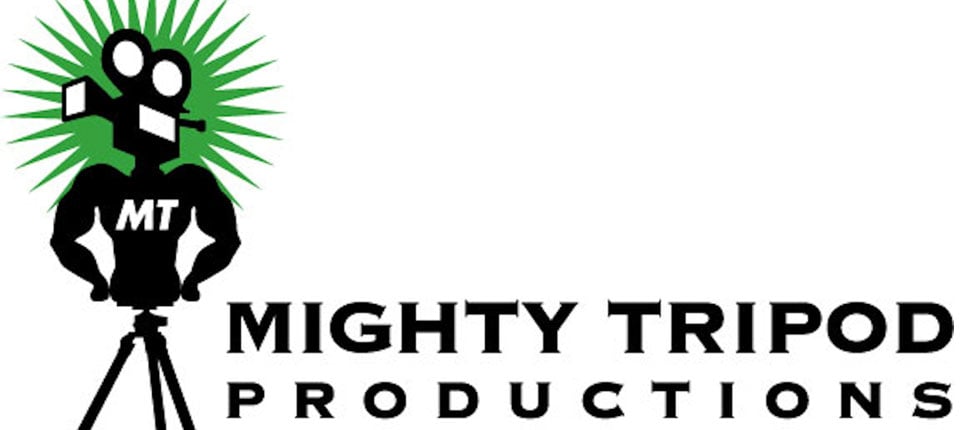Get Better at Acting Now: Tips from David

We had a discussion recently in my FB group about acting terms (lingo, jargon) and how a standardized vocabulary for actors, teachers, and directors make things easier on the actor and those in the business of show. I think most folks in the biz agree on the basics – super-objective, objective, intention, etc. – but there are a lot of technicalities and terms specific only to the world of acting which must be learned. And, sometimes, it seems like the more you learn the less you know.
The FB conversation started when my friend John Jacobsen (quite generously) posted a glossary of acting terms on the wall of the group. A few disagreements ensued, but a lot of us agreed on the definitions of this or that, which led me into thinking about my training, my “knowledge,” my experiences, and how I teach acting. I am always refining not only how I approach a role, but how I teach with Mighty Tripod. There are always ways to be more effective, and the more I learn and experience, the more I want to share with my students.
What follows are a few thoughts on the craft of acting and how I think you (the student or the working actor) can work more effectively and honestly as an actor.
What is acting? No, forget that. Let’s assume you have covered this one. Or, maybe you have a definition that you really love. I don’t think addressing this here is all that important.
Is acting easier than it looks?
[youtube id=”S4K2znuYjwI” width=”600″ height=”350″]
[separator top=”40″ style=”shadow”]
Or, is it that good acting only looks easy?
“Talking and listening…to do that is the beginning and the end of acting for me and it’s not as easy as it looks sometimes. Everyone says, ‘Oh, you’re just being yourself up there.’ And I say, try it. Try it. It’s not that easy” – Robert Duvall (from At Left Brain Turn Right, pg.23).
So, what does “good” acting look like? Feel like? Sound like? And, how can actors ACT better?
Let’s first visit a few basic tenets of acting:
- Relaxation is necessary.
- Concentration is critical.
- Preparation of some kind must take place.
Sidebar! Let’s watch a little video on how different actors prepare. I think the aforementioned Robert Duvall comes up, even:
[youtube id=”UpxITuyRuGA” width=”600″ height=”350″]
[separator top=”40″ style=”shadow”]
So, there you go. You know who Scott Caan is right? He comes from pretty good actor stock (dad is James Caan) and I love how he talks about the old school dudes from New York (probably trained at or near The Group Theatre or The Neighborhood Playhouse) and how they like to approach the work vs. how he prepares and works. Acting is not one size fits all, for sure.
Back to acting 101:
- Larry Moss’s “Acting Triad” consists of “Objective, Obstacle, and Intention,” in his book, The Intent to Live. And we are back to needing that glossary, aren’t we? Do these words mean anything to you? If they don’t, they should. Or, if you are just getting started, expect to be introduced to these terms soon. I like Larry Moss, you can learn more about his vibe in the video below:
[youtube id=”y1T0icpgMu8″ width=”600″ height=”350″]
[separator top=”40″ style=”shadow”]
What else:
- Nervousness gets in the way. Put your attention on your partner (Meisner-ian). Breathe.
- Being precedes doing.
- Listening informs speaking.
- Start with the given circumstances.
Okay. Let’s move away from the bullet points, shall we? To act, is to do. To take action. Most directors say, “Action,” right? But, what happens before that? What is the actor doing before she is taking action? We call this “Moment Before” or “Prior Moment” work. Being. Yes. The character (and actor – or are they one?) is Being. Living under the imaginary (or “given”) circumstances. “What would you do in this situation if you where there,” Stanislavski might ask. “If.” If. The “magic if.” Let it tickle your imagination.
Before you take action, you have to be somewhere. You are coming form somewhere. Some point of view. Some “state of being.” We are always taking in information. And so we must when we act. We receive. Our whole body listens. And then responds. Not only must the actor do, she must allow herself to be moved. To be “done to.” Under the circumstances, what is your body experiencing? Where are you? When it it? How do you feel about where you are and who you are with? And on and on. And on. Before you speak and before you act, ask yourself, “Where am I listening from?” (Nike Imoru). Are you listening from a place of fear? Desire? Disbelief? Joy? Where? Where are you – First, “where is the character coming from?” Then, “what does the character want and what is she doing to get it?”
Listen. Then respond. Listen to what the circumstances suggest. Breathe. Look at your scene partner. Really look. Take them in. Speak. Now, listen to your scene partner – listen to how they say what they say. Listen with your body and your bones. Respond. And, keep breathing.
“What are you doing and how do you feel about what you are doing?” Ask this of the character when you are doing your scene study.
There are a lot of ways “in.” This post will not teach you all you need to know, but it might make you think or maybe make you dig a little deeper the next time you work. I hope it makes you consider. Or pause. Or breathe.
If you like the post, please share.
Find us on FB.
Follow us on Twitter.
Study with us in Seattle.
And, keep in touch.
~ David


Responses